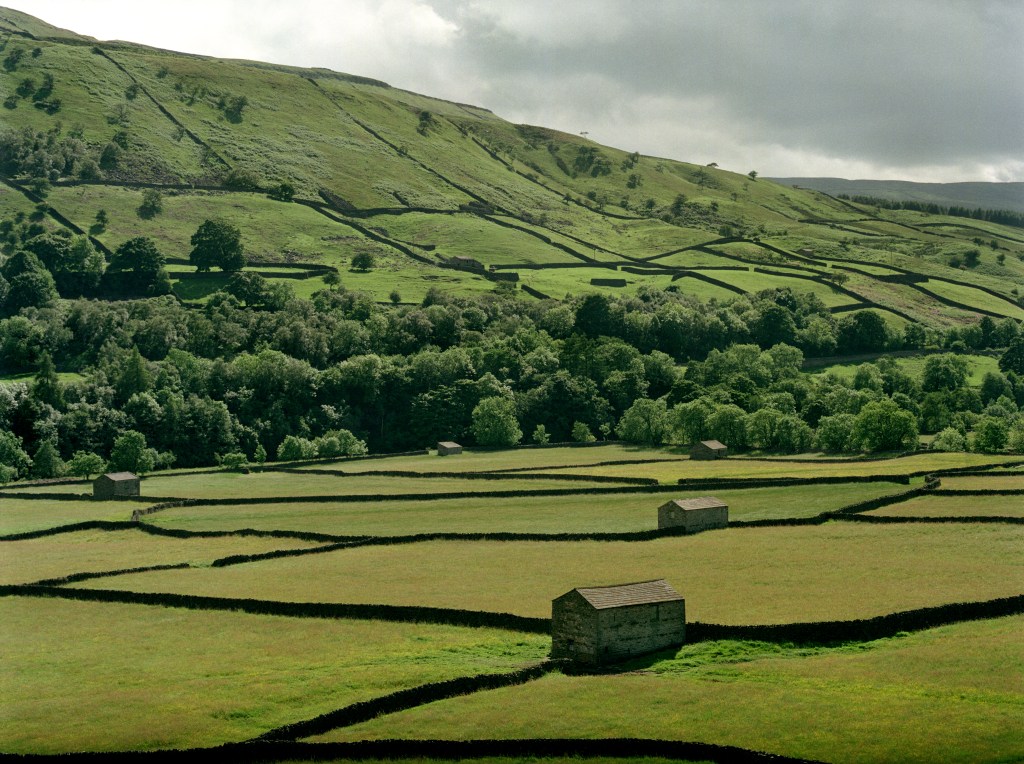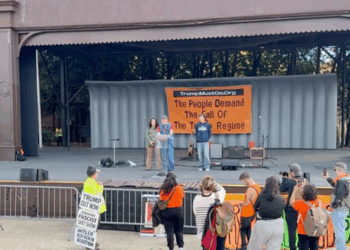
For 28 long years, the sunny southern English city of Chelmsford was the place I called home. I was born and bred there as we say: learned to walk and talk in the house still owned by my parents, worshipped there in a small church, was married there, and rented my first house there. Chelmsford made me into the man I am now; it will forever be my heimat.
But Chelmsford is no longer the place I call home. Just before Christmas last year, I moved with my wife away from everything that was familiar in Chelmsford, “up north” to the cloudy uplands of the Yorkshire Dales: a land of high fells and traditional sheep pastures enclosed by drystone walls. Most people our age move to urban areas and big cities; our move was against the tide, so to speak, in that we moved to a small rural community in Sedbergh. But we were deliberate in our decisions, earnestly desiring to be rooted in this place where beauty is abundant, community is thicker and friendlier, and opportunities for service are ubiquitous. (And, it must be said, house prices are a lot lower up north!)
True to our rooted intentions, it hasn’t taken us long to settle down. We have begun the long process of improving the old Grade II listed terrace house we now own. We have made friends with local farmers and enjoy buying fresh meat from local butchers. We have become the youngest members by far of the Community Orchard Group and intend on planting a few local heritage apple trees—which is probably the most rooted thing one can do—in our small garden that we are restoring. Sedbergh has become our rooted home; the place we intend on staying until our days on this earth are done. And we hope that Sedbergh will be a better place for us having lived there.
The urge to settle down somewhere has seen a modest revival in the last 10 or so years, especially among young adults. Though the prophets of modernity and progress have long proclaimed the virtues of mobility—of moving where the grass is greener, of moving onward and upward, and of never confining yourself to one particular place—an increasing number of us are finding this nomadic, rootless life exhausting and unstable. We crave roots, a place to call truly home, and a place we can know intimately and be known intimately by in return.
No doubt our modern inclinations toward hypermobility have led to desirable social and economic outcomes, such as talented professionals enabled to move to where the best opportunities are, and innovation driven by the cross-pollination of people mixing ideas and cultures from diverse areas of the globe. Easier mobility also helps some to escape undesirable locations, such as places suffering from environmental degradation.
But mobility has its discontents. We have become, in the words of Wendell Berry, an overly nomadic society, an absurdity when we consider most of us are surrounded by so much abundance, so many opportunities for good work, and so many responsibilities in the places where we currently are. And as journalist Grace Olmsted notes in her book Uprooted, the siren calls of the big city lights have tempted and uprooted myriad young people from rural places and industries, leaving behind hollowed-out, struggling places deemed deprived or, euphemistically, “backward,” by those sitting in the great urban halls of power.
So, though there is nothing wrong per se with mobility, I strongly believe that our societies, especially rural societies, need many more people to adopt a life of rootedness where they are, or to move to places with the intention of being rooted. Only then will the issues blighting our modern societies—the erosion of traditions, rural neglect, the prevalence of shallow relationships—begin to be resolved.
Sedbergh has been fortunate in this regard. Though the main local industry of traditional sheep farming has suffered from low wool prices, an aging farming population, and hostile government policy, there is a thriving young farmers scene which has given those in the industry hope that their farms will continue into the future. Sedbergh is also the home of a 500-year-old private school, which is the main employer for the community and brings in much wealth. However, despite these positives, locals lament the steady decline of shops on our small high street and the continued trend of houses being bought up and turned into holiday accommodation, which pushes house prices beyond the affordability of young locals. Thus, like many rural places, what Sedbergh desperately needs is more rooted people, whether that be young local folk who decide to stay or “offcommers” such as my wife and I.
But a question arises. What about those who desire to be rooted, but whose current stage in life or job makes rootedness impossible, such as those in the military, or young people currently at college or university? Is rootedness possible for them? I believe it is, though we will have to look at rootedness from a different angle, considering its habits and dispositions rather than the actual process of settling down and sticking in a place for the long haul.
Firstly, and most importantly, embrace the fact that “where you are is where you are.” As I have written before, the place in front of you right now is your primary responsibility and should occupy the majority of your attention. Don’t be sidetracked or distracted by the greener pastures elsewhere, or where you might move someday—rather, commit to learning as much as you can about your new local place, whether it be a big city, small college town, or even a new country. Learn about its history and be curious about what makes it special and unique—its local foods, traditions, and customs. Participate in and enjoy these local distinctives, and thus help to keep them alive. Read the local news (for me that is Look Around) as much as the national news and participate in local events, such as village shows or local sports; let your calendar be filled with what your local place and its people have to offer.
Secondly, seek to be a blessing to your place: Invest your time, skills, and money there. Join local clubs, interest groups, and societies, especially those that may be struggling for new members. Participate in local politics. Make close local friends. Plant a tree in your garden whose fruits other people will enjoy. Beautify your place by helping to rejuvenate run-down places and spruce up the house you currently live in.
Do things that make sense only if you were to live here for the long haul—not only for yourself, but for those who come after you. As Berry says, commit to building up the “cultural humus” of your place, which will ensure you leave it in a better condition than when you came. In doing so, you may encourage those who come after you to become rooted to this place, as they enjoy and partake in the goodness you have left behind.
Though you may not always be able to enjoy the fruits of your rooted labor, take heart. Your memory and influence will live on in the history and the beauty of this place, and you will become a better person for having blessed it. And remember, all those skills and wisdom that you have cultivated on how to live well will help you to live better in the place you finally come to land—and become rooted.
Finally, as you do all these things, keep in mind that this place, though you believe your stay is only temporary, might well turn out to be your forever place. Circumstances have a habit of changing. Deep connections and affections for this place and its people may form, and if you are unmarried, perhaps even your future spouse might be found here. Perhaps, then, you should let your roots take a firmer hold in this place—your place. And if you do decide to remain, then you will be even more grateful for the good work you have already begun.

















